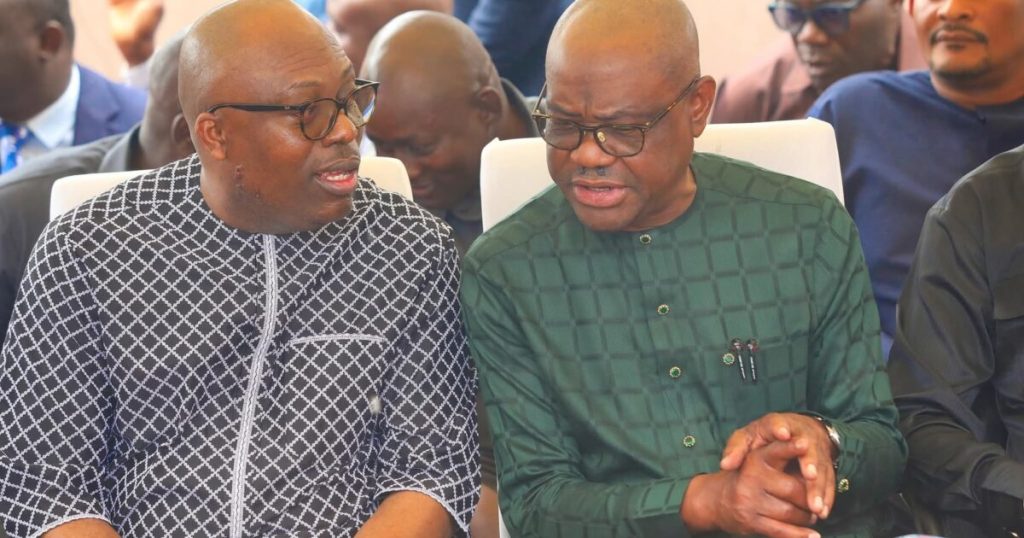Paragraph 1: Setting the Stage for Transition
Rivers State is poised to mark a significant turning point in its governance as it transitions from a period of emergency rule back to democratic structures. This transition follows a period of intense political turmoil and instability, culminating in the declaration of a state of emergency by President Bola Tinubu in March 2025. The emergency declaration led to the suspension of Governor Siminalayi Fubara, his deputy, and the elected members of the Rivers State House of Assembly. The decision, initially met with mixed reactions, stemmed from a complex interplay of political conflicts, security challenges, and alleged constitutional breaches. The subsequent appointment of Vice-Admiral Ibok-Ete Ibas (retd) as sole administrator marked a temporary shift in the state’s leadership. Now, as the period of emergency rule nears its end, the Rivers State Government is embarking on a series of activities to usher in the return of democratic governance.
Paragraph 2: Thanksgiving and Reconciliation
The transition process has commenced with a symbolic gesture of unity and gratitude: an inter-denominational church thanksgiving service scheduled to be held at the Ecumenical Centre in Port Harcourt. This service is intended to bring together key stakeholders from various sectors of the state, including government officials, security agencies, traditional leaders, and representatives from the business community. By gathering diverse segments of society in a shared expression of faith, the state government aims to foster a spirit of reconciliation and collective purpose as Rivers State embarks on this new chapter. The service will also serve as a platform to acknowledge the challenges faced during the emergency period and to express hope for a more stable and prosperous future.
Paragraph 3: The Genesis of the Crisis
The roots of the political crisis that engulfed Rivers State lie in a power struggle between the then-incumbent Governor, Siminalayi Fubara, and his predecessor, Nyesom Wike, who subsequently became the Minister of the Federal Capital Territory (FCT). The conflict escalated rapidly, marked by a series of contentious events, including the demolition of the House of Assembly complex. This act fueled disputes over the legitimacy of the legislative body and further exacerbated tensions within the state’s political landscape. The demolition symbolized the breakdown of communication and cooperation between the executive and legislative branches, contributing to the overall atmosphere of instability.
Paragraph 4: Security Concerns and Constitutional Questions
Beyond the political infighting, Rivers State also grappled with significant security challenges. Allegations of widespread pipeline vandalism by militant groups raised concerns about the state’s ability to maintain law and order. This security threat compounded the existing political tensions and further eroded public trust in the government’s ability to effectively manage the state’s affairs. Furthermore, questions arose regarding constitutional adherence. The Supreme Court later criticized Governor Fubara’s handling of the Assembly, describing it as “despotism” and declaring that there was “no functioning government” in Rivers State. This judicial condemnation further legitimized the federal government’s intervention and underscored the gravity of the constitutional crisis.
Paragraph 5: The Administrator’s Role and Justification for Emergency Rule
During the period of emergency rule, Vice-Admiral Ibok-Ete Ibas (retd) assumed the role of sole administrator, tasked with overseeing the state’s affairs and steering it towards a return to normalcy. His appointment aimed to provide a neutral and stabilizing force during a time of political uncertainty. The Attorney-General of the Federation, Lateef Fagbemi, defended the imposition of emergency rule as a necessary measure to prevent the complete collapse of governance in Rivers State and to restore constitutional order. He argued that President Tinubu’s decision was not taken lightly but was based on careful evaluation of the situation, including failed mediation attempts and the aforementioned Supreme Court ruling.
Paragraph 6: Looking Ahead: The Path to Democratic Renewal
The inter-denominational thanksgiving service serves as a symbolic first step in the transition back to democratic governance in Rivers State. The event signifies an intention to move forward, fostering unity and healing after a period of profound political and social upheaval. The challenges that led to the emergency declaration – the political discord, security issues, and constitutional concerns – will need to be addressed in a sustainable manner to ensure long-term stability and prevent a recurrence of the crisis. The transition period will require collaboration and compromise from all stakeholders, including political leaders, community representatives, and citizens. The focus must be on rebuilding trust in government institutions, strengthening democratic processes, and promoting peaceful coexistence. The road to recovery will undoubtedly be challenging, but with a commitment to dialogue, reconciliation, and adherence to the rule of law, Rivers State can emerge stronger and more resilient. The thanksgiving service marks not only the end of an era but also the beginning of a renewed hope for a more unified and prosperous future.


